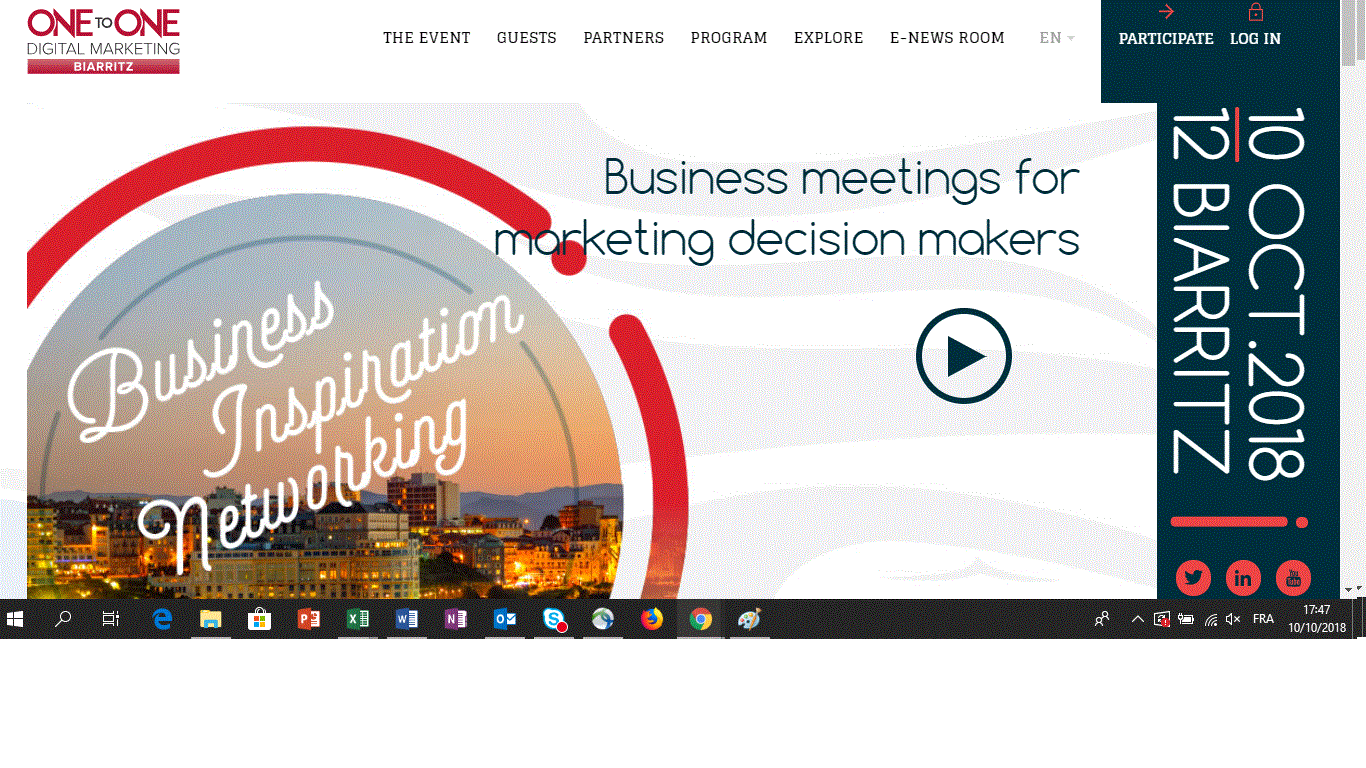One To One — Digital Marketing Conference In Biarritz
I am very excited to have been invited for the third time to give the opening keynote speech at One to One, a great marketing conference taking place on October 10–12 in Biarritz in the southwest of France.
To summarize my talk in a few points, I have shared some global marketing trends and how they translate in a French context:
- AI-powered conversations do not really exist yet. Despite the buzz on chatbots and voice-based assistants such as Alexa or Google Assistant, the reality is that most brand experiences on new conversational interfaces are based on decision trees, basic scripts, and a minimum of machine learning. We’re still quite far away from a mainstream Google Duplex demo! Most chatbots do not offer scale yet and precisely need data to train the machine. However, let’s not forget technology will evolve quickly and that, according to Javier Gonzalez Helly, founder and co-CEO at Botfuel, “The next generation of chatbots will truly enable consumers to change their mind, express multiple intents, or even digress like in any human-to-human conversation.” A paradigm shift in technology is also happening: Natural language will dominate computer language. In a post-web and mobile application era, brands will no longer force consumers along a predefined path; they will use conversations to understand context and personalize experiences in “customer time.”
- Beyond the tech hype, CMOs should embrace conversational marketing. Conversational marketing is not about bots or Alexa; it is about changing the mindset to move from a brand monologue to a two-way, authentic, and persistent dialogue across touchpoints. However, conversational marketing is not new: It is simply based on listening to your customers, incorporating feedback into your marketing strategy, and communicating back to them in the context of that moment. To be served in their moment of need and in their choice of channel, empowered customers have shifted toward new conversational platforms. Among French consumers aged 18–29, respectively 68%, 56%, and 34% use Facebook Messenger, Snapchat, and WhatsApp at least weekly. It requires you to analyze past conversations (using CRM as the digital memory of past conversations), measure the conversation readiness of your customers (not everyone wants to chat via smileys through Messenger or WhatsApp, and yes, some traditional channel also deliver value to start creating a dialogue), embody your brand values, and contextualize the dialogue by moving conversations from customer care to personalized answers throughout the customer life cycle.

- AI will spark a marketing renaissance. AI will offer many new marketing use cases way beyond NLG conversations, digital media buying, or just email subject line or time optimization. Moving forward, it will free marketers from many of the manual tasks they deal with when it comes to managing and measuring campaigns and enable them to focus on what really matters: customer understanding, brand strategy, and brand experience. That’s why, moving forward, CMOs will need new skills in their teams: creativity, data science, neuromarketing, ethnography, psychology, ethnography, design, etc. Not surprisingly, according to our Forrester Analytics Global Business Technographics® Marketing Survey, 2018, 34% of marketers in France told us that their No. 1 challenge is employee recruiting and retention.
- Marketers in France struggle to deliver a good customer experience. According to our latest Customer Experience Index (CX Index™) for France in 2018, only 3% of French customers told us they feel that brands deliver a good experience, way behind the UK or Germany. This is not really due to a lack of innovation or less mature digital behaviors in France (even though only 6% of French consumers use a voice-assistant speaker, versus 12% and 13%, respectively, in Germany and the UK), but one of the key reasons is that French firms do not treat CX as a business discipline. They tend to underestimate the organizational and cultural aspects of CX. Culture — defined as a set of shared values and beliefs that drive behavior — is the most important element and the one that has the highest impact on delivering great CX. That’s why customer experience and employee experience are so closely interconnected. Not surprisingly, only 31% of French marketers we surveyed told us that they are in charge of CX, while the average stands at 45% globally. Whether or not CX experts and talents report to the CMO, it is time for CMOs — especially in France — to orchestrate the delivery of their brand promise. It will increasingly require CMOs to work closely with CIOs and CPOs (chief people officers) to make sure employees are onboarded to deliver their brand values.
View a short summary (in French) in this video here.
